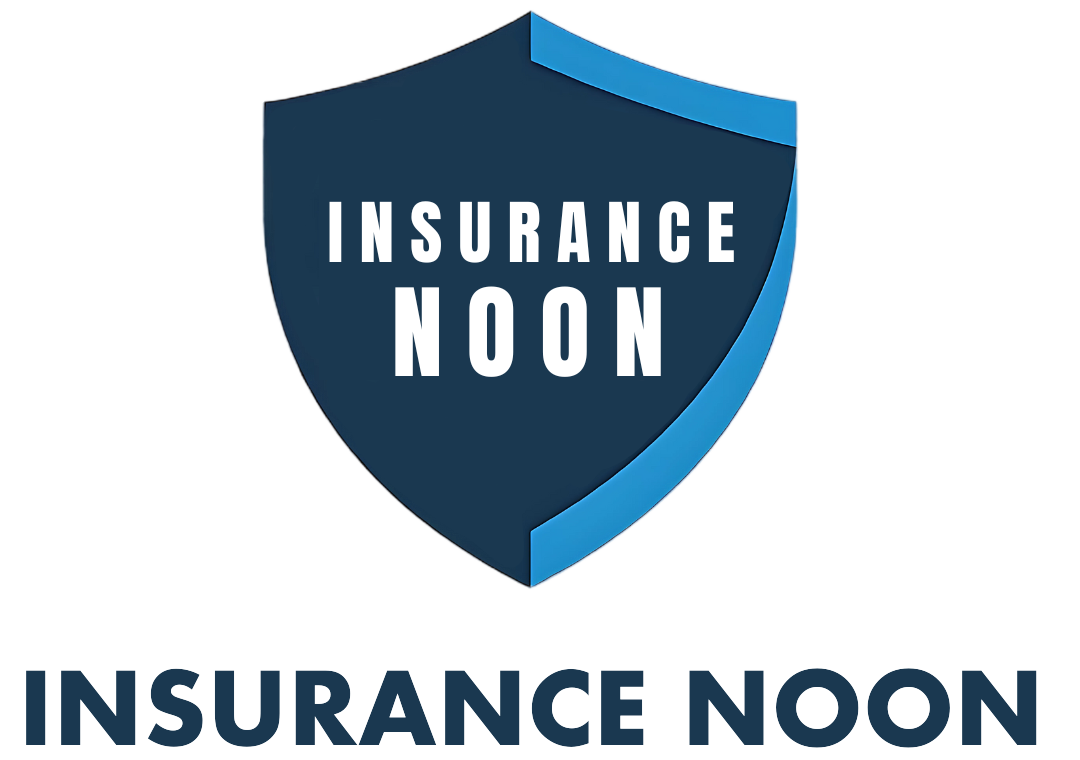Property And Casualty Insurance: An Informative Understanding
Your property remains something of utmost importance to you no matter what therefore when someone tries to do harm to it you need a protective shield and a cover therefore it is better to shield yourself through an insurance as it protects you fully in event of a casualty.
Most dangers to property, such as fire, theft, and some weather damage, are covered by property insurance. Fire insurance, flood insurance, earthquake insurance, home insurance, and boiler insurance are examples of specialist insurance. There are two types of property insurance: open perils and designated perils.
All causes of loss not specifically excluded in the policy are covered by open perils.
Damage from earthquakes, floods, nuclear disasters, acts of terrorism, and war are all common exclusions on open peril plans. In order for insurance to be provided for named dangers, the actual cause of loss must be mentioned in the policy. Fire, lightning, explosions, and thievery are just a few of the more well-known listed hazards.
Casualty insurance is a poorly defined phrase that broadly comprises all insurance that isn’t immediately related to life, health, or property insurance.
Casualty insurance covers an individual or organization’s liability for negligent acts or omissions. Property insurance, aviation insurance, boiler and machinery insurance, and glass and crime insurance are all examples of the word.
Marine insurance for shipwrecks or losses at sea, fidelity and surety insurance, earthquake insurance, political risk insurance, terrorist insurance, and fidelity and surety bonds are all examples of this type of insurance.
Automobile insurance is one of the most frequent types of casualty insurance today.
Automobile insurance, in its most basic form, offers liability coverage in the event that a driver is determined to be “at fault” in an accident. Insurance regarding the automobile covers medical bills for those injured in the accident, as well as restitution or repair of destroyed property, all of which are covered by casualty insurance.
Here, casualty insurance coverage comes into significant play.
The policy would no longer be solely a casualty insurance policy if it was extended to cover damage to one’s own car or theft. Property insurance covers mainly material property (premises – we are talking about home insurance or household insurance, furniture, equipment, inventory, vehicles – we are talking about all-risk or casco automobile insurance) against accidents, fires, theft and other unintentional damage (except for wear and tear of course).
What is property insurance?
Select weather-related illnesses are often covered by property insurance perils, such as damage caused by fire, smoke, wind, hail, the impact of snow and ice, lightning, and more. Property insurance also covers the structure and its contents against vandalism and theft. Liability coverage is provided by property insurance in the event that someone other than the property owner or tenant is injured on the property and decides to sue.
Property insurance coverage typically excludes damage caused by a variety of catastrophes, such as tsunamis, floods, drain and sewage backups, seeping groundwater, standing water, and a variety of other water sources. Mold isn’t normally covered, and earthquake damage isn’t either. Furthermore, most policies will not cover catastrophic situations like as nuclear weapons, war, or terrorism.
Property insurance study guide
The majority of homeowners opt for a hybrid coverage, which covers physical loss or damage caused by 16 dangers like fire, vandalism, and theft. There are some limits and exclusions to the coverage, which is known as a HO3 policy. Certain valuables and collectibles, such as gold, wedding rings and other jewels, furs, cash, firearms, and other goods, have a predetermined coverage limit. Accidental breakage/damage and strange disappearance (lost, misplaced) of valuables, including fine art and antiques, are normally not covered under a HO3.
HO5 homeowners coverage includes everything in a HO3 insurance, but is focused on the structure and personal property within the home, such as furniture, appliances, clothing, and other personal belongings. Earthquakes and floods are not covered by a HO5.Homes built in the recent 30 years or renovated in the last 40 years are eligible for HO5 insurance policies, which normally cover any damages at replacement cost.
HO4 property insurance, sometimes known as renter’s insurance, protects tenants against personal property loss and liabilities. It does not cover the actual house or apartment being rented; the landlord’s insurance policy should cover that.
Note that none of these coverage levels reimburse the homeowner for property that fails or is damaged due to normal wear and tear, like a roof that leaks without being damaged by wind or hail. Home warranties, which are another option to protect your property, can come in handy in this situation.
What does property insurance cover?
The following loss causes are addressed:
- Fire
- Lightning
- Implosion and explosion
- Damage to aircraft
- Strike, riot
- Terrorism
- Storm, cyclone, typhoon, tempest, hurricane, tornado, flood, and inundation are all examples of natural disasters.
- Damage caused by impact
- Malicious harm from landslide and subsidence
- Tanks bursting or overflowing
- Missions to test missiles
- A forest fire
What property insurance doesn’t cover?
The following items are not covered by insurance:
- War, civil war, and other similar risks cause loss or harm.
- Nuclear activity results in a loss or damage.
- Changes in temperature cause loss or harm to supplies in cold storage.
- Over-running of electric and/or electronic machinery results in loss or damage.
Claims In the event of a fire loss covered by the fire insurance policy: the insured must notify the insurance company immediately. The insured must file a claim in writing within 15 days of the incidence of the loss, detailing the damages and their estimated values.
Why is the fire insurance aspect of property insurance important?
The Act defines it as an insurance contract by which the insurer undertakes, within the limits laid down by law and in the contract, to compensate for damage caused by fire to the insured object.
Fire is considered to be the burning and burning with flame, capable of propagating, of an object or objects that were not intended to be burned at the place and time when it occurs. Insured property must be described in the policy, the law in its art, describes the property included in the concept of furniture.
The ordinary or common use of the insured person, his family, dependants and other persons living with him, excluding, unless otherwise agreed, insurance cover for damage caused by the fire in public or private securities, commercial effects, bank notes, stones and precious metals, artistic objects and other objects of value in the insured object even if their existence and destruction and deterioration by the accident are proved.
If the damage caused by the adoption of measures by the authority or the insured person to prevent, cut or extinguish the fire is included, the costs of transport or rescue of the insured objects and their disappearance, unless the insurer proves that they were stolen.
So-called indirect damages such as the change of alignment in the damaged buildings, the lack of rent or use, the termination of the contract, the suspension or cessation of work, the lack of profits or any other similar damage are not covered.
Obligation to compensate
The obligation to compensate is imposed when the fire is caused by chance, by the ill-will of strangers and by the negligence of oneself or of persons for whom civil liability is incurred, but not by the wilful or serious fault of the insured person, and provided that the destruction or deterioration of the objects to which the insured interest falls occurs at the place described in the policy, unless their transfer had previously been accepted by the insurer.
This type of insurance can also cover, through an overprima, the locative risk and the resources of neighbors.
Thus the locative risk refers both to the responsibility of the insured, tenant of the damaged building, before the owner of the same, as to the responsibility of the owner before the tenants, or even before third parties.
The risk referred to as a neighbour’s remedy relates to civil liability for actions which a third party may take against the insured as a result of the spread of the fire.
As for the duration of the fire insurance contract, it shall be governed by the general conditions, if it is stipulated for a period upon its expiration it shall be construed as tacitly extended for a period not exceeding one year.
Theft insurance aspect of property insurance
It is defined as that insurance contract by which the insurer undertakes, within the limits established by law and in the contract, to compensate for the damage resulting from the unlawful removal by third parties of the insured goods.
Coverage includes damage caused by the commission of the offence in any form. By extending the compensation, not only to the value of the interest of the insured property, but also to the damage resulting from the commission of the crime, which can be more or less broadly delimited in the policy.
Exclusions to be taken into account
Unless otherwise agreed, extraordinary risks insured by the Compensation Consortium are excluded. Also excluded are claims caused by serious negligence on the part of the insured person, the policyholder or persons who depend on them or who live with them, as well as events outside the place described in the policy or occurred in its transport unless both circumstances had been expressly consented by the insurer.
Finally, abandonment is allowed, if it is covered by the contract, that is to say, the insured, when the object is not found in a period, has the right to demand the full amount of the insured sum in exchange for assigning to the insurer its rights in the thing to which the insured interest has been recovered.
Land transportation insurance aspect of the property insurance
It is a contract by which the insurer undertakes, within the limits laid down in the law and in the contract, to compensate for any material damage which may be caused to or as a result of the carriage of the goods carried, the medium used or other secured objects.
In the case of combined transport, the Insurance Contract Act applies if the inland journey is the principal. Otherwise the discipline of sea or air transport applies. The legitimacy for the insurance contract extends to the agent and the transport agencies.
Coverage begins unless otherwise agreed, from the time the goods are delivered to the carrier and ends when they are delivered to the consignee at the point of destination.
Provision may be made for the extension of insurance to cover risks affecting the goods from the time they leave the warehouse or the shipper’s domicile until they enter the warehouse or address of the consignee, and even cover the temporary storage of the goods and the immobilisation of the vehicle or its change during the journey due to transport incidents.
What is casualty insurance?
Casualty insurance is a poorly defined phrase that broadly comprises all insurance that isn’t immediately related to life, health, or property insurance. Casualty insurance covers an individual or organization’s liability for negligent acts or omissions.Liability insurance, like property insurance, shields you from financial loss if you are legally liable for another person’s injuries or property damage.
To be held legally accountable, one must have shown negligence, or a failure to use sufficient caution in one’s personal activities. If someone is harmed as a result of someone else’s negligence, the offending party is responsible for the damages. Liability losses are commonly referred to as third-party losses in the insurance industry. The first party is the insured. The second party is the insurance company. The third party is the individual to whom the insured is accountable for damages.
How to get a property and casualty license
- Take a pre-licensing course in property and casualty insurance.
Although not all states need pre licensing certification, it is strongly advised that all licence applicants undergo a study programme in order to pass the state licencing exam.
- Register for the state exam through the exam provider recognised by your state.
It is recommended that you schedule your state exam in advance and study toward your exam date when preparing for it. Each state’s exam testing provider publishes an examination content overview. This chart breaks down the tested topics as well as the quantity of questions per each concentration area.
- Meet all of your state’s standards.
Candidates for licensure can expect the procedure to take at least 40 hours.
The course will cover both broad product information and state-specific material that is required to pass the state exam. Because this programme is self-paced, creating a study plan will help you remain on track and pass the first time!
- Be confident in your ability to pass your state exam.
To prepare for exam day, double-check that you have the correct test centre address and directions, and arrive early in case of any unforeseen delays.
Prepare for the exam by learning the regulations and procedures of the testing centre. If you are easily distracted, request ear plugs and spend time going over the testing demo to calm your anxiety. Remember, you shouldn’t edit any answers unless you’re certain they’re correct.
- Apply for your licence in accordance with your state’s standards.
Difference between property and casualty insurance
Property and casualty insurance, also known as property casualty insurance and property liability insurance, covers businesses, homes and vehicles. In general, the property component of this insurance protects property against loss, including loss of its income-generation capabilities.
Coverage also includes property repair and replacement. The casualty component of this insurance shields the policyholder against legal liability for injuries to a person or property.
For example, if a person is injured on your property because of your negligence, your property and casualty insurance would pay for the person’s injuries and any legal costs that may arise from the incident. Insurance companies can often tailor property and casualty insurance to the needs of the policyholder.
Casualty insurance is not tantamount to any notion where it can be assumed in a highly bizarre manner that if a person does commit a grave mistake such as a horrible car collision which unfortunately results in different casualties then the person who inflicted casualties in the first place is to enjoy the perks of such type of insurance.
It is rather a situation where the person affected by an accident has the advantage of bearing the damage caused to him/her by any means and in any way solely by resorting to an effective remedy that comes in the form of an insurer’s assistance.
One can never anticipate the trouble that is about to befall one’s self therefore it is vital to endeavor towards an approach where life gives you a stable safety net to fall back on instead of aimlessly wandering around as a battered being looking for answers to your security as an individual.
Security only comes with and can only be made sure of through an effective, efficient and stable provision of insurance which one can only attain and avail through a right consumption of an insurance model.
Such an insurance model which comprises both property as well as casualty insurance makes one feel secure no matter wherever they are be it they are in their home, office, car, farm or barista.
Property and casualty insurance for commercial and personal purpose
Businesses and other organisations get commercial insurance in the same way that individuals and families do. For property-casualty insurers, the distinction between personal and commercial insurance is critical. Some insurers specialise in commercial insurance, while others specialise on personal insurance.
Many insurers offer both, although they usually do so through separate personal and business divisions. Businesses and other organisations’ property-casualty insurance needs are generally more complex than those of individuals and families.
As a result, compared to personal insurance, commercial insurance requires significantly more policy forms and endorsements. “Commercial Property Insurance” refers to insurance that protects commercial buildings and their contents against fire, windstorm, and a variety of other disasters.
Policies can be acquired to cover a single building at a single site or a number of structures at several locations (blanket).Property insurance, in general, relates to your own belongings, or the things you own.
Coverage C of property insurance
Property insurance, on the other hand, can be defined in a variety of ways depending on the sort of coverage you have. In a renters policy, for example, your belongings are referred to as personal property. It’s called Coverage C under the policy, and it covers your belongings in the case of a covered loss.
Property insurance is a popular insurance coverage for company owners since it protects the structure and belongings of the business from damage and theft.
Pet insurance is same as property insurance
Pet insurance is another option, which is surprising given how much our pets are a part of our families. However, because your insurance reimburses you for the costs of caring for your cat or dog, it’s also called property insurance.
In a nutshell, casualty insurance protects you from legal liability for damages caused by damage to someone else’s property or an injury to someone else. This type of coverage is included in the liability coverage amounts of your homeowners and renters insurance policies.
Casualty insurance is a frequent insurance coverage for small business owners because it protects them from obligations if a worker is injured on their premises.
Conclusion
Property and Casualty Insurance remain very pivotal in fomenting the foundations of a very stable and safe life for every citizen who feels entitled to protection for themselves and their possessions such as property. One also has to remain aware of the perilous side of life as accidents may happen and at times they are bound to happen due to our wrong decisions therefore, it is vital for everyone to at least get themselves insured also through Casualty Insurance. Property insurance will cover all of the goods and equipment in the business or house in the event of a loss or damage.






